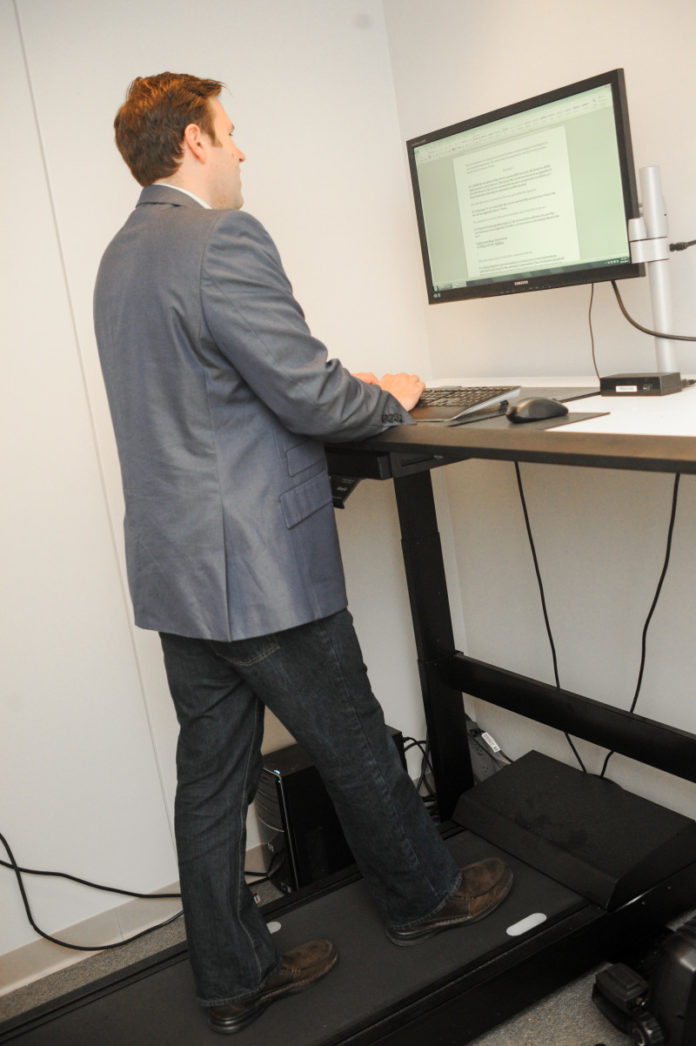
Walking workstations can improve not only physical, but also mental health during the workday, a new study released this week found. The research was conducted by faculty and student researchers from the Department of Psychology in the School of Science at Indiana University-Purdue University Indianapolis (IUPUI).
With growing concerns regarding obesity in the United States, Michael Sliter, assistant professor of psychology, hopes the study encourages employers to examine methods to assist workers in in healthy living.
“We found that the walking workstations, regardless of a person’s exercise habits or body mass index (BMI), had significant benefits,” Sliter said. “Even if you don’t exercise or if you are overweight, you’ll experience both short-term physical and psychological benefits.”
A sample of 180 participants were evaluated on boredom, task satisfaction, stress, arousal, and performance while completing work-related computer tasks across four randomly assigned workstations: seated, standing, cycling or walking.
The researchers found walking workstation participants had higher satisfaction and arousal, while experiencing less boredom and stress than the standing and sitting workstation participants. In comparison, the cycling workstation related to reduced satisfaction and performance.
The paper “Workout at work: Laboratory Test of Psychological and Performance Outcomes of Active Workstations,” which Sliter wrote entirely while using a walking workstation, appears online in the American Psychological Association’s Journal of Occupational Health Psychology and in the January 2015 print edition.
Sliter plans to continue exploring the psychological benefits of walking workstations in future studies. Particularly, he is interested in examining long-term psychological and physical benefits of such workstations.
Story Source:
The above story is based on materials provided by Indiana University-Purdue University Indianapolis School of Science. Note: Materials may be edited for content and length.
Journal Reference:
- Michael Sliter, Zhenyu Yuan. Workout at Work: Laboratory Test of Psychological and Performance Outcomes of Active Workstations.. Journal of Occupational Health Psychology, 2014; DOI: 10.1037/a0038175
